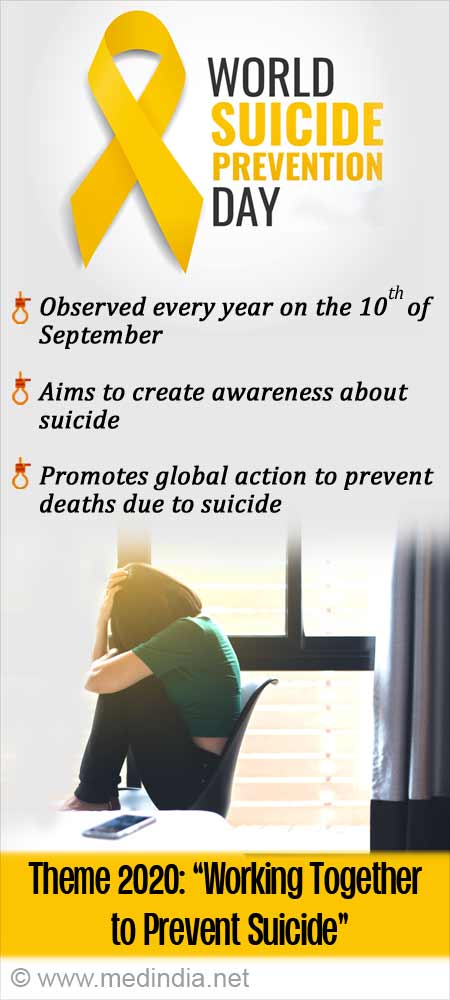Relevance: Sociology: paper I: Emile Durkheim- Suicide

World Suicide Prevention Day (WSPD) is observed on 10 September every year, to reinstate our worldwide commitment and action to prevent suicides, with various activities around the world since 2003. The International Association for Suicide Prevention (IASP) collaborates with the World Health Organization (WHO) and the World Federation for Mental Health (WFMH) to host World Suicide Prevention Day.
The themes given by WHO for the last two years was “working together to prevent suicide” has gained even more prominence this year due to the COVID-19 pandemic situation. The current novel, ambiguous and uncertain situation has yet again made us think globally, plan nationally and act locally. The mantra during current times is building resilience, overcoming stigma about mental illness and restoring hope through connect, communicate and care.
Creating awareness on suicide prevention
The prevention of suicide has not been adequately addressed due to a lack of awareness of suicide as a major public health problem and the taboo in many societies to openly discuss it. Raising community awareness and breaking down the taboo is important to make progress in preventing suicide. The main strategy required in this pursuit is to increase awareness about suicidal behaviours and how to effectively prevent them. Foremost in this is to reduce stigma and promote mental health literacy among the general population and non-mental health care professionals.
On the contrary since 2015, there has been a significant increase in suicide cases every year. A total of 1,39,123 suicides were reported in the country during 2019 showing an increase of 3.4% in comparison to 2018 and the rate of suicides has increased by 0.2% during 2019 over 2018.
Majority of suicides were reported in Maharashtra (18,916) followed by 13,493 suicides in Tamil Nadu, 12,665 suicides in West Bengal, 12,457 suicides in Madhya Pradesh and 11,288 suicides in Karnataka accounting for 13.6%, 9.7%, 9.1%, 9.0% and 8.1% of total suicides respectively. These 5 States together accounted for 49.5% of the total suicides reported in the country.
Strategies to prevent suicides
To ensure suicides are controlled and subsequently reduced we need to adhere to the following:-
- We need to reach people who don’t seek help, and hence, don’t receive treatment when they are in need of it.
- We need to develop and implement awareness campaigns, with the aim of increasing awareness of suicidal behaviours in the community
- We need to target our efforts not only to reduce risk factors but also to strengthen protective factor, especially in childhood, adolescence and the elderly.
- We need to train health care professionals to better understand evidence-based risk and protective factors associated with suicidal behaviour.
As a clinical psychologist, through practice, experience and research; we realise multiple lines of evidence indicating that COVID-19 pandemic has profound psychological, economic and social effects. These sequels may persist for months and years to come. The last six months of this pandemic are already associated with distress, anxiety, fear of contagion, depression, insomnia, acute stress disorder and imminent post-traumatic stress disorders among the general population and healthcare professionals. Social isolation, uncertainty, chronic stress, exhaustion, pain, hopelessness, risk for infection, burn-out among frontline workers, general fear of fatality, pay cut, loss of job & economic difficulties have led to the development or exacerbation of pre-existing psychiatric disorders and made most of us vulnerable. Stress-related conditions including mood & substance use disorders, domestic violence are linked with suicidal behaviours.
The COVID-19 survivors are also at increased suicide risk. Consequently, the risk for suicide has globally peaked. It is imperative to proactively work on decreasing stress, anxiety, loneliness and aimlessness in general population.
For more such notes, Articles, News & Views Join our Telegram Channel.
Click the link below to see the details about the UPSC –Civils courses offered by Triumph IAS. https://triumphias.com/pages-all-courses.php

